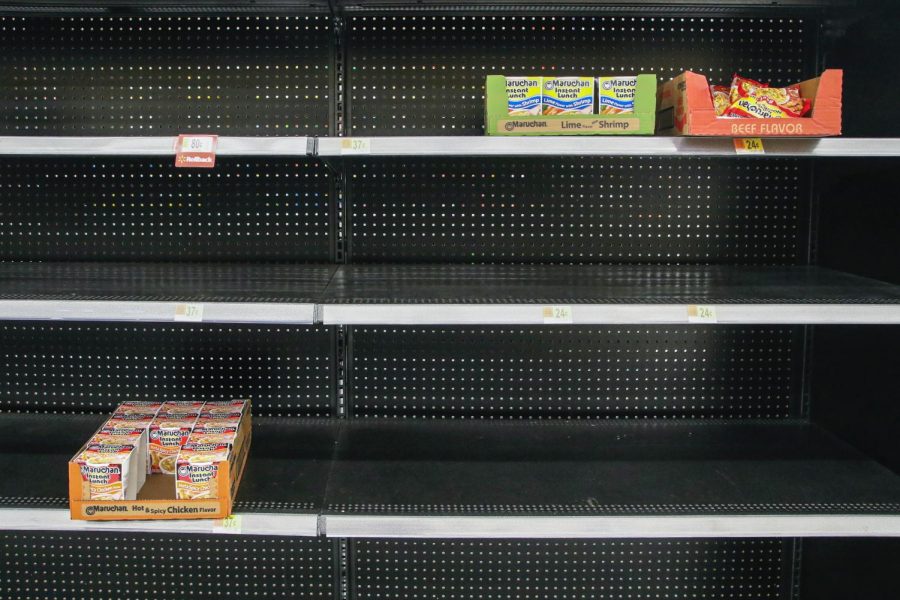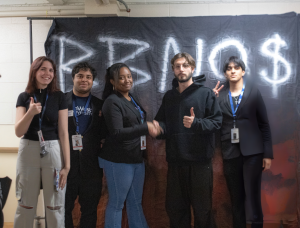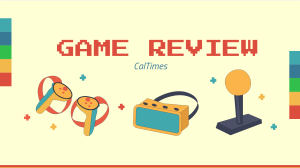Mini quarantine narratives
Three women share how their lives have changed due to the coronavirus.
Coping in quarantine looks different for everyone. Here are three stories of life amidst a pandemic
October 25, 2020
When the COVID-19 pandemic made its way to the United States this summer, the months of quarantine that followed altered the lives of civilians across the country. Three Washington County residents experienced this interruption of life and its lasting effects.
Bailey Schmalzried, 22, left for New Jersey two weeks into quarantine to work a crisis job with Aya Healthcare as a traveling nurse. Schmalzried spent April through July working at the Hackensack Meridian Health Ocean Medical Center.
“There were certain precautionary measures we had to take daily,” Schmalzried said. “Temperature checks, ample personal protective equipment.”
“If we’re working in the COVID unit, we could not leave that unit all night.” She said. “We also had to have a new N95 mask every shift.”
While in New Jersey, Schmalzried received a weekly stipend for housing.
“I lived in Hawthorn Suites,” she said, “I had my own studio apartment there.”
“Some days were harder than others, especially when I came home alone with no one to talk to,” Schmalzried said.
Schmalzried said the new people she met every day made life easier, and she began to spend free time at the beach with her friends. Schmalzried said that even though being alone in another state was difficult, she “learned a lot” about herself, which was “much needed.”
“I would do it again in a heartbeat,” Schmalzried said.
Eliza Patterson, 22, was a phlebotomist at Jefferson Hospital when the stay at home order was issued.
Patterson’s job as a phlebotomist was put on hold due to the rise in demand for help with COVID-19 patients, so she was enlisted to help with the pandemic instead.
Patterson said that every COVID-19 patient had to wear a “gown, hair net, rubber P100 mask, goggles and shoe coverings.”
Nurses such as Patterson were responsible for dressing these patients, which required them to “wear a mask for their entire shift and re-gown every time they encountered a new patient.”
Patterson said that because of COVID-19, general hospital traffic slowed down and so her hours were cut.
“It hurt me financially and none of it was easy,” she said, “but I dealt with it because there was simply nothing I could do about it.”
Madison Martini, 22, is a hairstylist at Baldwin Hair Loft in Quail Acres, Washington.
When quarantine began, Baldwin Hair Loft, like many other non-essential businesses, closed its doors until further notice.
“The beginning of quarantine was pretty rough for me,” Martini said. “I have depression and anxiety, so being stuck at home without being able to see my family or friends made it particularly hard.”
Martini said she found solace in the warmer months because the weather permitted outdoor activities.
“My boyfriend and I would go hiking or ride quads, so it was nice getting out of the house and getting my mind off of everything,” Martini said.
Aside from wilderness therapy, Martini would utilize technology to stay in touch with the people she was cut off from.
“FaceTime became my best friend,” she said, “I used it to see my best friends and family.”
Martini said that she still uses the app to talk to her pap.
“He’s in a nursing home and they’re still quarantining.” She said. “I miss him, but I’m glad he’s safe.”






